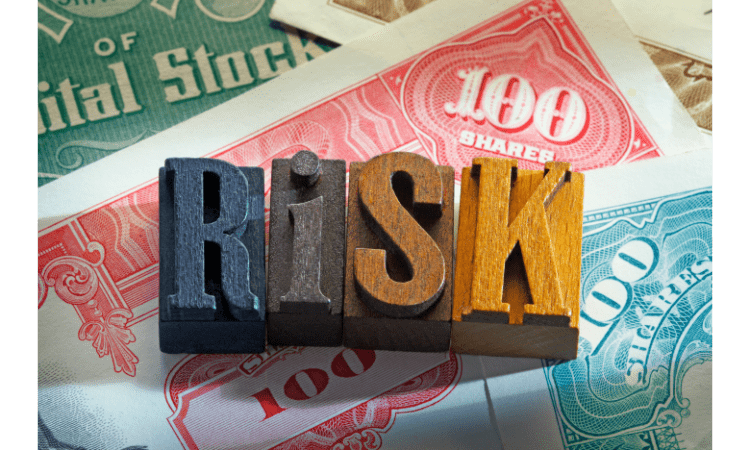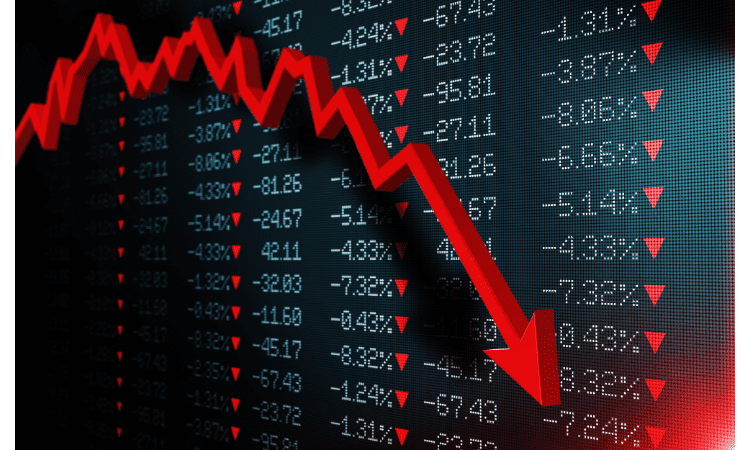
Stock Market is like a roller coaster, up and down all the time. But, if you can ride it out over a long period of time and hold on to it for several years, it will reward you with good amount of returns. It all depends upon your ability to handle the risk.
what is stock market

- The stock market is a place where people buy and sell shares of different companies. A stock is a share in a company. If you own 10 shares of Company X, then you own 10% of that company. When the company does well, your shares increase in value as well; when it does poorly, your shares decrease in value.*
Its benefits

- If you want to save for retirement, the stock market is the best place to do it.
- You can use your savings to buy a house in case you don’t have enough money saved up or if interest rates are high.
- When an emergency strikes, having cash in stocks can help you avoid going into debt and getting into trouble with your credit score.
- For college tuition and education, investing in stocks is one of the best ways to ensure that your child will receive a quality education without breaking the bank during their formative years as they grow up.
- You can also use stock market investing as a way to save up for vacations!
Long term investment goal

You should have a clear investment goal in mind. If you don’t have an investment time horizon, then it’s likely that you’ll be better off with a more conservative approach to investing.
The best way to ensure that your long-term goals are met is to start small and build up your portfolio over time. If you’re new to investing or just starting out on your journey toward financial freedom, don’t risk everything in one go. Instead, invest the smallest amount possible so that if the market takes a dive and affects the value of your stocks, at least you won’t take too much of a loss on account of it.
Returns

There’s no doubt that the stock market is risky. But if you’re looking for guaranteed returns, you’re in the wrong place.
The returns on stocks are not guaranteed to be positive or even high. In fact, they can be negative—and sometimes quite significantly so—even when things are going well overall for a company or sector. And even though the fluctuations in value are much smaller than those of other investments such as bonds and real estate, there’s still plenty of potential for loss if you’re not careful about how much risk you take on.
Moreover, even if we assume that your portfolio does do better than average and earn an above-average return over time (which is likely), this doesn’t mean that each year will see higher gains than others
Risks

However, the risk of losing money is not limited to the stock market.
The risks are quite obvious, but they’re worth thinking about even if you’ve done your homework and know what you’re getting into. The risks include:
- Not getting returns in time – because markets are volatile, it’s possible that your investment will bounce around for a while before going up enough to make a difference.
- Not getting returns at all – this is always a possibility with any investment—it could just tank and never recover.
- Not being able to exit at all – if you put your money in an illiquid asset like real estate or private equity funds then it might be hard to get out when you want/need to sell.
- Not being able to exit at the right time – when markets are booming and everyone else is making money hand over fist from their investments, but yours isn’t doing as well as it could be…
How much should we invest in stock market

The first thing you want to do is figure out how much money you can afford to invest in the stock market. It is important that you do not invest more than 10% of your monthly income, as this may cause undue stress on your part and prevent from being able to pay bills on time. If something happens where there was a loss in the stock market and you had invested more than 10% of your income, it could impact other areas of life such as rent or food costs.
You don’t want to invest more than what you can afford because if there is an unexpected situation such as an illness or job loss, then this would make it very difficult for someone who has invested too much into the stock market
Emergency exit options

The most important thing to remember is that you can always sell. If you want to exit your position, there are many ways to do so:
- Sell when the market is at a high price. Many investors consider selling stocks when they are at a peak because they believe that it’s too late if they wait any longer. This strategy may seem counterintuitive, but it actually makes sense because as soon as a stock hits its highest price, it’s likely going down from there. Investors also believe that selling their shares will help them avoid further losses and protect their gains from falling prices later on in the future; however, this only works if you don’t end up buying back what you just sold in the first place! The best way for someone who wants this type of investment strategy would be using mutual funds instead since they tend not .
- Sell when prices fall below certain thresholds: Some investors choose this option because it allows them some control over their finances without worrying about whether or not they’ll need money right away (i). For example: If an investor buys 1000 shares worth $100 each then sells 100 shares at $75 each then purchases another 250 more shares worth $85 per share then sells those 250 shares again so he ends up being able to buy back all his original 1000 shares when price goes up again which means nothing has changed except now he has less risk exposure than before doing this activity; therefore reducing how much money could potentially get lost due market fluctuations happening outside his control.”
When to exit

You have now learned how to start invest in stock market. Now, it’s time to learn how to exit from the market. When you buy a stock, you should always keep in mind that there is an exit strategy for when you want to sell your shares and make money. If you don’t have a plan for exiting the market when conditions change, then it will be hard for you to make money since there are many factors that could affect your investment choices at any given time..
The key point here is not only knowing when and why it’s best not too hold onto stocks but also understanding what can happen if those shares stay too long on your portfolio because they’ll hurt your overall performance
Do not panic with fall

Don’t panic with fall
As an investor, you should not invest more than you can afford to lose. The stock market is known for its fluctuations, and if you are not prepared to deal with them, then it’s best that you stay away from the stock market. However, if you are ready for the ups and downs of investing in stocks then go ahead!
You can motivate yourself without being mean to yourself.
As you get started investing, it’s important to remember that the stock market is volatile. If the market goes up one day, it will likely go down another day. That’s just how it works.
It’s also important to make realistic goals for yourself. You don’t want to set up unrealistic expectations for yourself and then feel bad when you can’t meet them! But at the same time, don’t be too hard on yourself either—you can motivate yourself without being mean to yourself!
Conclusion
In conclusion, I believe that you should definitely invest in the stock market. As I have shown you above, there are many benefits of investing in stocks. However, you must have a goal and a plan when it comes to making your investments. You need a plan for your investments because they will be part of your portfolio and they can help increase the value of your overall portfolio.
The bottom line is that you have to help yourself before others can help you. You are the only one who has control over your actions and choices. This means you can motivate yourself without being mean to yourself. You don’t need to set unrealistic goals or use negative self-talk in order to achieve results — just be honest about where you are, and give yourself credit for how far you’ve come!











